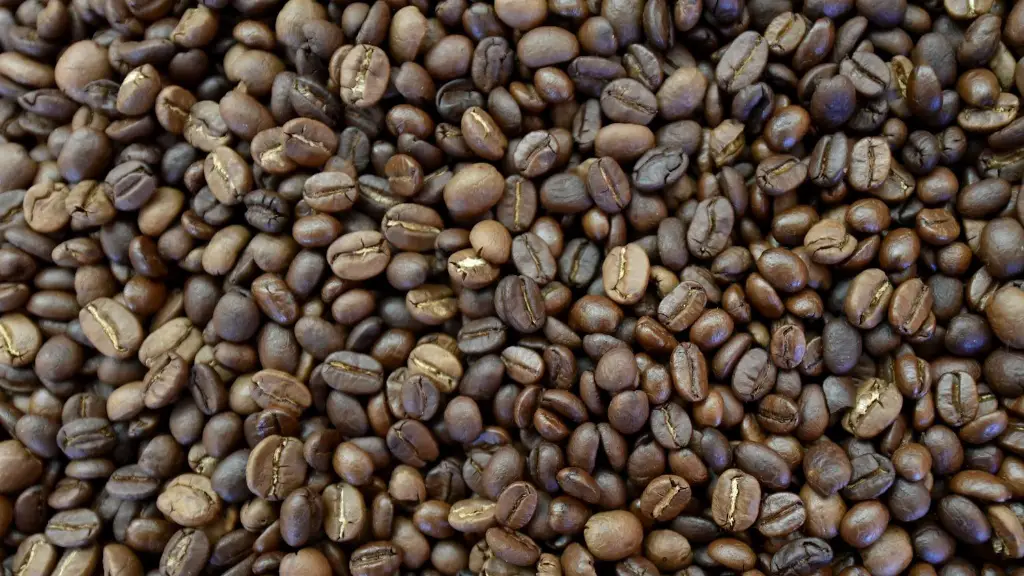Coffee is a popular beverage enjoyed by millions of people around the world. But does drinking coffee affect weight loss? Coffee has long been associated with alertness, productivity and weight loss efforts. And while it’s true that coffee can help give you the energy and alertness you need to stick to a healthy diet, and stay active, there’s conflicting information about how coffee affects weight loss.
It’s important to understand how coffee affects your body to be able to tell how it impacts your weight loss goals. Caffeine is the primary ingredient in coffee that gives it its energy-boosting properties. It enters your bloodstream quickly, stimulating your central nervous system and increasing your heart rate, helping you stay alert and awake. Caffeine also helps boost metabolism, helping your body burn more calories.For some people, increasing their metabolism through caffeine may help them lose weight.
However, many don’t realize that coffee can also have a detrimental effect on your weight loss efforts. Firstly, coffee can be high in calories if you add extra ingredients like cream and sugar.Secondly, coffee can also trigger cravings and can lead to excessive snacking. Finally, coffee can also be a diuretic, which can lead to dehydration, causing your body to retain more fluids, which can cause weight gain.
When trying to lose weight, experts recommend avoiding coffee and other caffeinated drinks. Instead, they suggest drinking more water, as this helps to keep you hydrated and also keeps your hunger levels in check. Additionally, eating a balanced and nutritious diet, with plenty of fresh fruits and vegetables, can help you achieve your weight loss goals.
When used in moderation, however, coffee can still be part of your weight loss plan. For those trying to lose weight, drinking black coffee or adding a small amount of almond milk or coconut milk is best, as these options are low in calories. Also, consider drinking coffee before exercise, as the caffeine can help you have more energy to push yourself during your workout.
The Role of Exercise in Weight Loss
For those looking to lose weight, regular exercise is essential. Exercise not only helps you to burn calories, it also strengthens your muscles, bones and other tissues, reducing your risk of injury. Additionally, it can help boost your metabolism and build muscle, giving you a leaner, more toned physique.
A well-balanced exercise plan should include a combination of aerobic exercises, such as running, swimming or biking, and anaerobic exercises. This can help you build strength and burn fat. Additionally, incorporating weight-training exercises, such as weightlifting, can help to build muscle and accelerate your progress. It’s important to choose exercises that you actually enjoy and that you can stick with.
In addition to physical exercise, experts also recommend adding in activities such as yoga or pilates, as these can help you to achieve your weight loss goals in a mindful and balanced way.
The Role of Diet in Weight Loss
As important as exercise is to achieving your weight loss goals, diet is also essential. Eating a balanced diet, with plenty of fresh fruits and vegetables, whole grains, lean proteins and healthy fats, can help to fuel your body and give it the nutrients it needs to perform. Additionally, limiting your intake of processed foods, sugary drinks and alcohol can also help to keep your body feeling its best.
Incorporating intermittent fasting, or fasting for shorter periods of time can also help to speed up your weight loss progress. Intermittent fasting involves alternating between periods of eating and fasting, thus forcing your body to dip into its fat stores for energy. This can help to improve your metabolism and speed up your weight loss.
Intermittent fasting can also be paired with other diet plans, such as the ketogenic diet, which involves eating high-fat, low-carbohydrate foods, and the paleo diet, which involves eating fresh and natural foods. By eating a balanced diet and incorporating intermittent fasting into your routine, you can more easily reach your weight loss goals.
Addressing Cravings During Weight Loss
One of the biggest challenges of weight loss is cravings, as they can be difficult to resist. Cravings are usually caused by dehydration, low blood sugar, and lack of sleep, so it’s important to make sure that you’re drinking enough water, eating regular meals, and getting enough sleep. Additionally, increasing your intake of protein can help to reduce cravings, as it helps to keep you feeling fuller for longer.
Incorporating more fresh fruits and vegetables into your diet can also help to reduce cravings, as these are filled with vitamins and minerals that can help to promote feelings of fullness. Additionally, eating healthy snacks such as nuts, seeds and trail mixes can also help to reduce cravings and give you the energy you need to stay on track.
Finally, it’s important to practice self-discipline and try to avoid triggers, such as the scent of freshly-baked cookies or the sight of your favourite fast food restaurant. By understanding what triggers your cravings and staying mindful and aware, you can more easily resist them and stay on track with your weight loss goals.
How Much Weight Can You Lose?
It’s important to remember that everyone’s body is different, so your weight loss journey and rate of success may be different from someone else. Additionally, the amount of weight you lose will depend on your diet, exercise, lifestyle and overall goals. Generally speaking, the more effort you put into your weight loss plan, the faster and more successful your progress will be.
It’s not uncommon for those trying to lose weight to see very slow progress when they first start out, as the body takes time to adjust. However, as you continue your weight loss efforts, you may start to see more significant progress. Additionally, low-impact exercise such as walking or stretching can help to get your body moving and can often have a positive impact on your progress.
To ensure you’re seeing progress, it’s important to stay consistent with your diet and exercise. Keeping a food journal or tracking your weight loss online can also help you to stay on top of your progress and motivate you to keep going.
Make It Sustainable
It’s important to remember that weight loss shouldn’t be done in the short-term. To make sure your progress is sustainable, it’s important to incorporate healthy lifestyle habits into your day-to-day life. For instance, trying to make healthier food choices, getting adequate sleep and managing stress levels can all help to support your weight loss journey. Additionally, developing healthy cooking habits and learning how to read nutrition labels can help make it easier for you to make healthier food choices.
Finding support can also be beneficial, as it can be easier to stay motivated when there’s someone by your side cheering you on. Joining support groups or enlisting the help of a qualified nutritionist or personal trainer can help you stay on track and reach your goals.
By understanding how drinking coffee can affect your weight loss efforts, and incorporating healthy practices into your day-to-day life, you can more easily achieve your weight loss goals and create a healthier, more balanced lifestyle.





